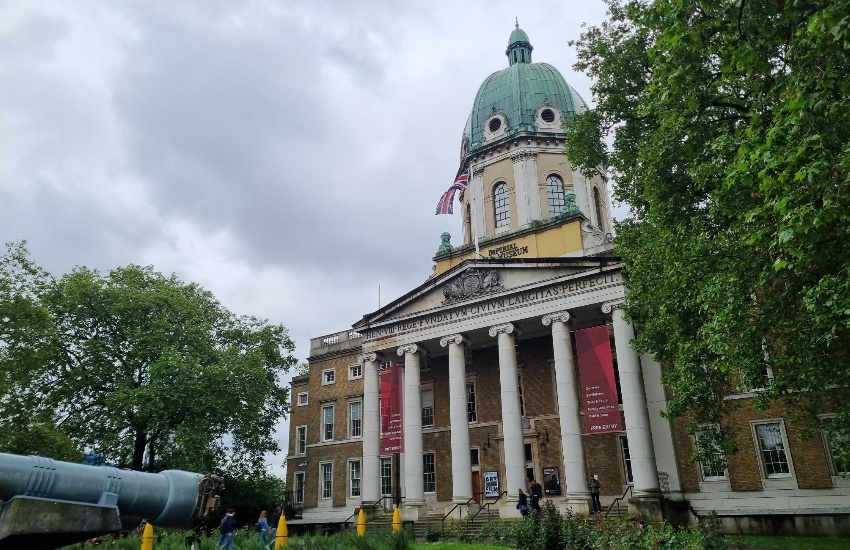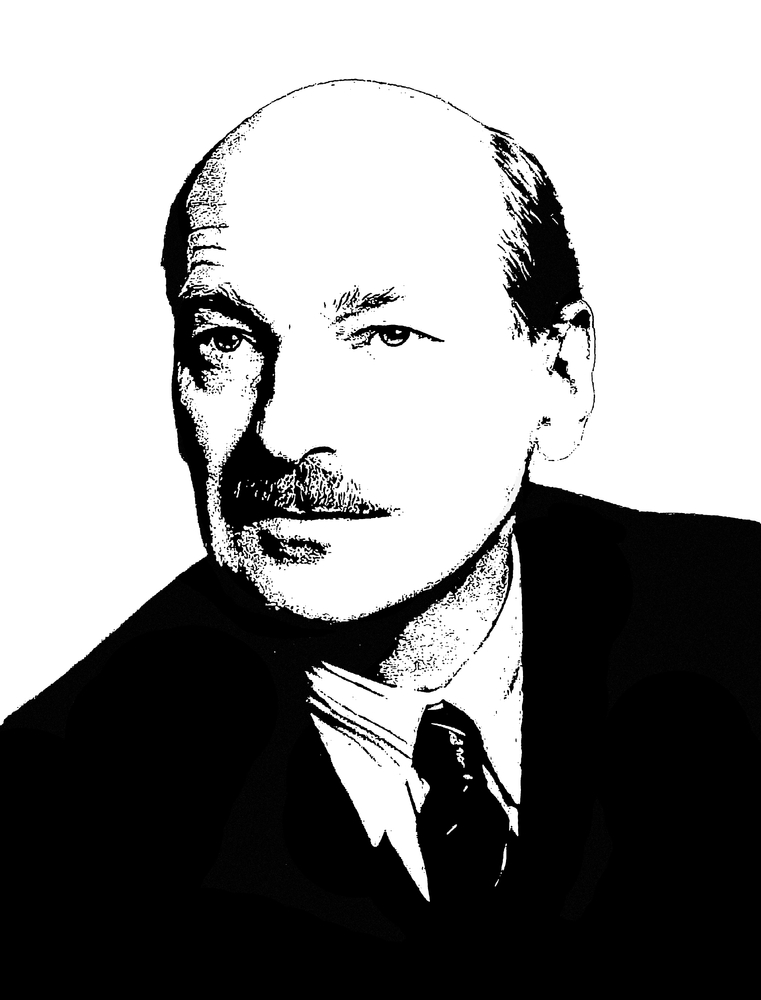


The British government covered-up the truth of what happened to the perpetrators of Alderney wartime atrocities in four separate ways which should be acknowledged, an expert has said.
Among the revelations in the expert report into Alderney Nazi atrocities published yesterday was that the British government covered up the fact that the perpetrators had been handed over to the Soviet Union, and that Moscow failed to prosecute or punish them.
This was to secure German prisoners held by the Soviets who had been responsible for the greatest atrocity against RAF servicemen of the entire war while prisoners made their escape from a Polish prisoner of war camp in what is now known as The Great Escape.

Pictured: The findings were presented at the Imperial War Museum.
One of the authors of the report, Professor Anthony Glees, said the affair had been a failure and that the British government should consider addressing it.
He said: “This is a very dismal story, and it is a dismal story of failure. It is a dismal story of justice denied by the postwar Labour government, but it was not their intention. And as so often, not always, but in cases like these, the cover up is actually worse than the original policy.
"The policy didn't make sense, but covering up has not made sense. If there was ever an argument for open and transparent government, it is this."
Professor Glees said officials didn’t “turn a blind eye to murder” but there was a “lack of resolve to recognise serious errors”. He said he would put more money into education on the topic to shine a light on “man’s inhumanity to man".
He explained: “That’s why this war crimes issue is so absolutely vital. You cannot wipe a sponge across the history of these things because they still go on.
"What authority do we have to bring people to justice today if we don’t recognise we have failed to do so."
Commenting on the revelations, Lord Pickles said: “I’m sorry that many of the perpetrators died peacefully in their beds. But their memory remains."
But he added that the question of a formal apology is a matter for the British government and not the review panel.
Professor Glees identified four cover-ups in his research, including changing and false claims that victims were limited to Russian or Soviet citizens, and the decision to hand the case over to the USSR in the first place, which wasn’t revealed until 1971.
“This was done, and it was done formally, with the understanding that Soviet justice would be meted out to these people. It never was,” he told the audience.
“But the intention of the British government was not that these people should escape, and the British had a particular reason for wanting to have the principle of nationality, rather than just the principle of territoriality.
"That was because the British authorities wanted to get their hands on the Germans who had shot 50 of the so-called Great Escape prisoners who escaped from Stalag Luft III.
“The confusion that is obvious from the documents in the British National Archives, about whether all the victims of Nazi atrocities in order the Russians, or most were Russians, and in the documents, they changed the story all the time.
"Over time it became ‘all the victims were Russians’. But that wasn't true, as we've heard up to 30 different nationalities were amongst the victims and hundreds of Jews, for example. But the British decided that it would, for all practical purposes as they said, all of it should be classed as Russian."
Another element concealed for decades was that the British government knew the Soviet Union never pursued the case, which caused a headache for key cabinet members and the Prime Minister at the time.
Professor Glees said: “The Soviet Union did nothing in this matter, and none of the perpetrators were punished, and that was covered up. That has not been publicly revealed until today.
“We should not assume that the British authorities were happy about this – actually they were unhappy. [Clement] Attlee and the Foreign Secretary [Ernest] Bevin were unhappy. Also, Sir Hartley Shawcross, the Attorney General, was so cross about it, he said if the Russians weren’t to try these people, we must try them ourselves.
“But the response from the Foreign Office was no, we can't do that. It's an order. No British Military Tribunal may try a German for atrocities committed by committed against Russians. So, nothing happened, and the public were never told that nothing happened.”

Pictured: The Prime Minister at the time, Clement Attlee, was reportedly unhappy that the Russians had failed to prosecute, but also that Britain was unable to try the perpetrators themselves.
He said the British also lied to French officials that all documents had been handed over to the USSR, when the latter came calling for information after beginning legal proceedings against people captured and found to have been involved with Alderney during the occupation.
Professor Glees explained: “The British authorities wrote back and said we have no files; everything was handed over to the Russians. In effect, if you have any questions, direct them to the Soviet Union. That too is a complete lie.... So, we always had it, it was always there. But we did not want the French to do that.
“By the time it became clear in 1947 that the Soviet Union was not going to bring the Alderney perpetrators and others like them to justice, it became too alarming for the British government to admit that they had handed over to the Soviet Union cases that they should have tried themselves.”
He noted that the Soviet Union was more focused on Nuremberg than smaller instances of war crimes, and Stalin was more concerned with returning Soviet citizens to the country from the Channel Islands evidenced by the fact he sent repatriation officials rather than war crimes commissioners to the islands after they were liberated.
The advent of the cold war was also a factor, and even today researchers have been unable to access materials held in Russian archives despite repeated requests.
Professor Glees insisted that the British wanted justice, and separately hundreds were found guilty, many executed and even more jailed for war time atrocities.
Comments
Comments on this story express the views of the commentator only, not Bailiwick Publishing. We are unable to guarantee the accuracy of any of those comments.